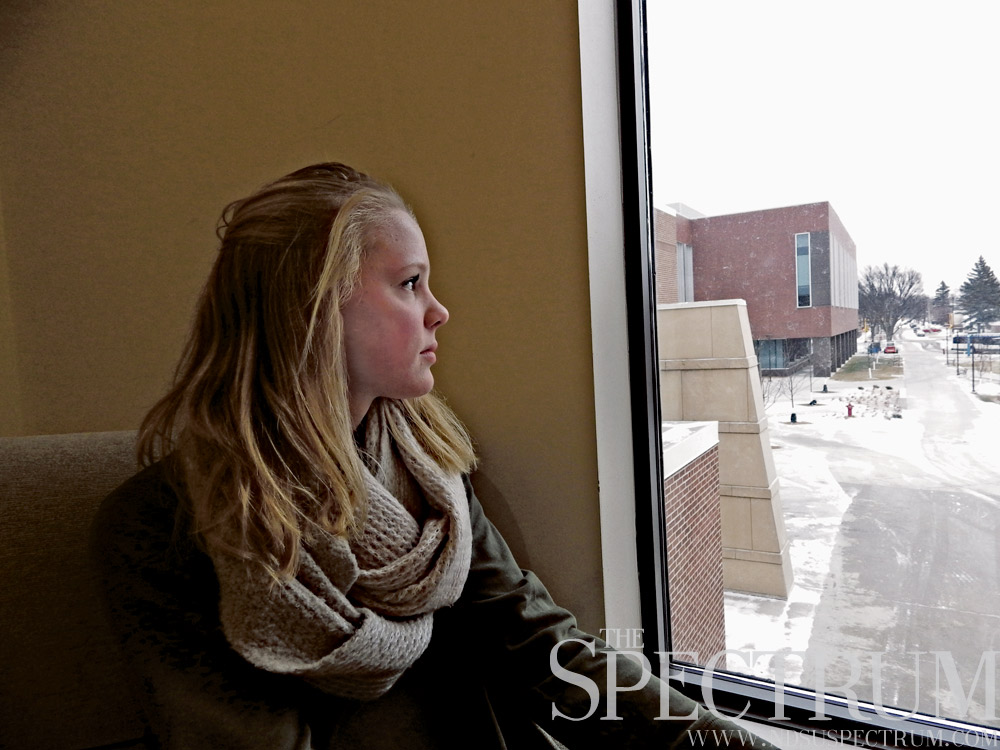
Taylor Willis said she may love history, but her pre-pharmacy major is not in line with that.
Regardless, the sophomore gained an interest in government and current events from her advanced placement government course in high school, a general education class that left her with more than she expected.
“I went from not caring about politics or government or anything related to social studies to suddenly becoming very interested in current events and the way our government is run,” Willis said.
Her interest in news is one example of general education’s influence, taking something valuable away from a course a student never thought they would.
Following a feasibility committee’s determination that an outcome-based proposal for general education at North Dakota State was not in line with North Dakota University System policy, NDSU’s general education focus is still under the microscope. Carrie Anne Platt, a communication associate professor and faculty senator who chaired the committee, said while the proposal didn’t align with policy, outcome-based general education “is very important.”
“It’s considered a best practice in education to focus on outcomes, to say our students are actually getting what we hope that they are getting from these courses rather than sitting in these courses hearing the professor talk about these courses,” Platt said.
Outcomes over content
Content- and outcome-based focuses are two different models for general education. A content-based model concerns fulfillment falling in line with a course’s discipline.
“Outcome-based models focus on certain types of knowledge or skills that students would be expected to have by the time they have completed that course,” Platt said, offering an example of learning numeracy through a communication course that may not be under the category of science and technology.
NDSU’s outcome-based proposal for general education “was in violation” of NDUS system-wide policy, Platt said. The proposal would have also clashed with the ease of transferring among NDUS institutions, as with general education credits.
The dropped proposal was in line with a nationwide trend of outcome-based general education, Platt added, though NDSU faculty and departments continue to shift toward an outcome focus.
“We thought that NDSU’s best chance for incorporating outcome-based education, which many faculty strongly believe in … would be to integrate the outcomes within our existing categories,” Platt said.
Categories like science and technology, where chemistry and biology fall in line, but examining outcomes along the way.
The dropped proposal produced a half-change, as Platt put it.
“It’s a compromise model of maintaining the categories but an expectation that the departments offering them or the faculty teaching them do meet the outcomes,” she said, adding the outcome-focused change is more visible on the instructor level.
“I would hope … that students might see greater attention to learning outcomes in their courses and perhaps faculty talking more about those outcomes because this change should prompt you to think about that, but you never know,” Platt added.
Expanding perspective
While students can grouse about taking semesters of courses not in their major, Platt said general education is all about “expanding (their) mind and (their) perspective.”
“It’s often hard to know when you’re in college what is going to be useful or valuable for you,” she said.
Janell Legreid, a sophomore in exercise science, took a biblical studies course taught by an atheist.
“Because Bible classes that I had been in in high school often awarded a good grade if you had all the ‘Christian’ answers, that’s what I was used to. But this class, taught by an atheist, was the exact opposite,” she said.
After years of attending church and a Christian school, Legreid said she’s better now at analyzing the Bible and its gospels, and “not just trying to fit myself and my life and experiences into that verse or chapter.”
Platt said she met a Concordia College student who “became an engaged Buddhist” after taking a religion course.
Willis said a book she had to read for AP Government is one of the best books she ever read — a military memoir on the raid that killed Osama bin Laden.
“That class didn’t put me on the track to changing my major or anything, but it definitely got me more interested I things like that,” she said, adding, “I think that everything you learn in school is valuable to you in some way whether it is related to your major or not.”
